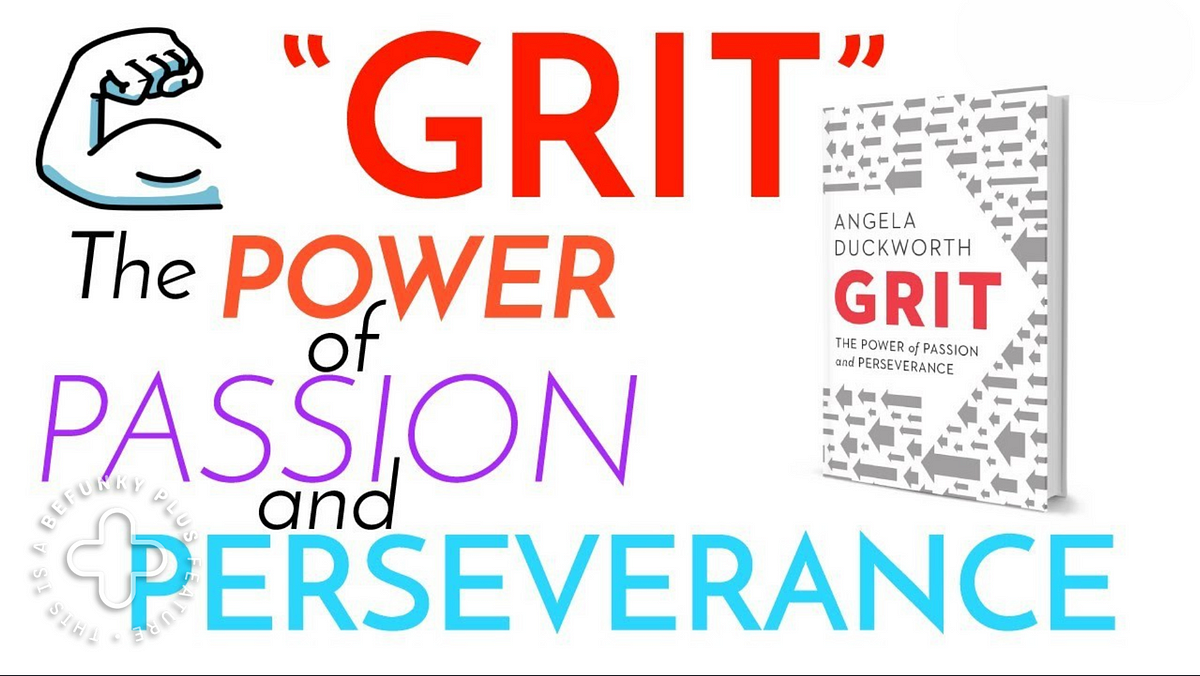Have you ever embarked on a journey, brimming with enthusiasm, only to find yourself faltering when the slightest hint of difficulty arises? What if the true essence of success lies not merely in innate talent but in the audacity to sustain passion over the long haul? Angela Duckworth’s compelling treatise, “Grit: The Power of Passion and Perseverance,” mingles personal anecdotes, empirical research, and practical insights to unravel this profound concept of grit. In a world often enamored with effortless success, Duckworth invites us to delve deeper and embrace the complexities of dedication.
To commence our exploration, let us consider the essence of grit. Duckworth posits that grit consists of two pivotal dimensions: passion and perseverance. Passion refers to the sustained enthusiasm one exhibits towards long-term goals, while perseverance embodies the unwavering tenacity to persist in the face of obstacles. Together, these qualities craft a formidable synergy that propels individuals toward achievement, irrespective of the hurdles encountered along the way.
One of the most striking elements of Duckworth’s argument is her use of real-world examples. From the tenacity of elite athletes to the steadfastness of distinguished academics, she illustrates how grit transcends mere talent. The narrative of West Point cadets serves as a poignant case in point. Those who possessed grit were more likely to endure the rigorous challenges of military training. This raises a provocative question: how do we cultivate such resilience in ourselves? The challenge lies in recognizing that grit can be nurtured, much like a muscle that strengthens with consistent exercise.
Diving deeper, Duckworth delineates the misconceptions surrounding talent. Society often reveres natural aptitude, relegating effort to a secondary role. However, Duckworth’s assertive stance is clear: talent alone is never sufficient for extraordinary achievement. Through the lens of various fields, from music to business, she illustrates that effort counts twice—first, it is the driving force that transforms potential into skill, and secondly, it leads to achievement. This duality beckons us to consider how we might redefine success in our own lives. Could it be that what we perceive as limitations are merely the starting points for our tenacity?
Moreover, Duckworth emphasizes the significance of a growth mindset, a concept popularized by psychologist Carol Dweck. This philosophy posits that abilities and intelligence can be developed through dedication and hard work. The interplay between grit and a growth mindset is particularly enlightening. Individuals who adopt this perspective are more likely to embrace challenges and learn from feedback, ultimately placing them on a trajectory toward success. Thus, the challenge before us is to foster this growth mindset within our own lives. How can we train ourselves to view setbacks as opportunities rather than failures? What practical steps can we implement to shift our internal dialogue toward growth?
Building upon these ideas, it becomes essential to consider the environment in which grit flourishes. Duckworth illustrates that supportive relationships and mentorship can significantly impact one’s ability to cultivate resilience. She encourages us to surround ourselves with those who challenge and uplift us. This presents another intriguing question: who are the figures in your life that inspire you to dig deeper? Identifying these individuals may just kindle the fire of persistence when the going gets tough.
Furthermore, Duckworth stresses the importance of long-term goal setting, as well as the iterative journey toward those goals. She advocates for the “3 P’s” approach: Passion, Purpose, and Practice. Passion lays the groundwork for our interests, purpose provides the motivation, and practice is the consistent effort toward achieving mastery. Notably, she urges readers to engage in deliberate practice—activities specifically designed for improvement rather than mere repetition. As we ponder our own aspirations, we must ask: how intentional are we with our practice? Are we honing our skills, or are we merely going through the motions?
Amidst these engaging discourses, Duckworth’s narrative remains laced with optimism. She recounts her own journey, detailing the trials and tribulations she faced as she pursued her passion for psychology. Her journey underscores the profound insight that grit is not a static trait but rather a dynamic quality that evolves over time. In times of doubt, reflecting on personal experiences can serve as a powerful motivator to persist. It poses another introspective challenge: how often do we take the time to evaluate our own stories and extract learning moments from them? Perhaps adopting a reflective practice could empower us to confront obstacles with renewed vigor.
Ultimately, Duckworth’s “Grit” is not merely a prescription for success; it is an invitation to embrace a journey characterized by complexity, resilience, and unwavering commitment to our passions. As we venture forth, let us ponder the salient questions it raises regarding our own lives. How can we cultivate passion? What measures can we adopt to persevere against the currents of adversity? In a world that often equates immediate success with validation, “Grit” is a clarion call to seek fulfillment through patience and hard work.
In conclusion, the invaluable lessons woven throughout “Grit: The Power of Passion and Perseverance” challenge us to rethink our definitions of success. It reminds us that while talent is vital, the real magic of achievement lies in the grit with which we pursue our ambitions. So, are you ready to embark on your own path of perseverance? The journey awaits.
